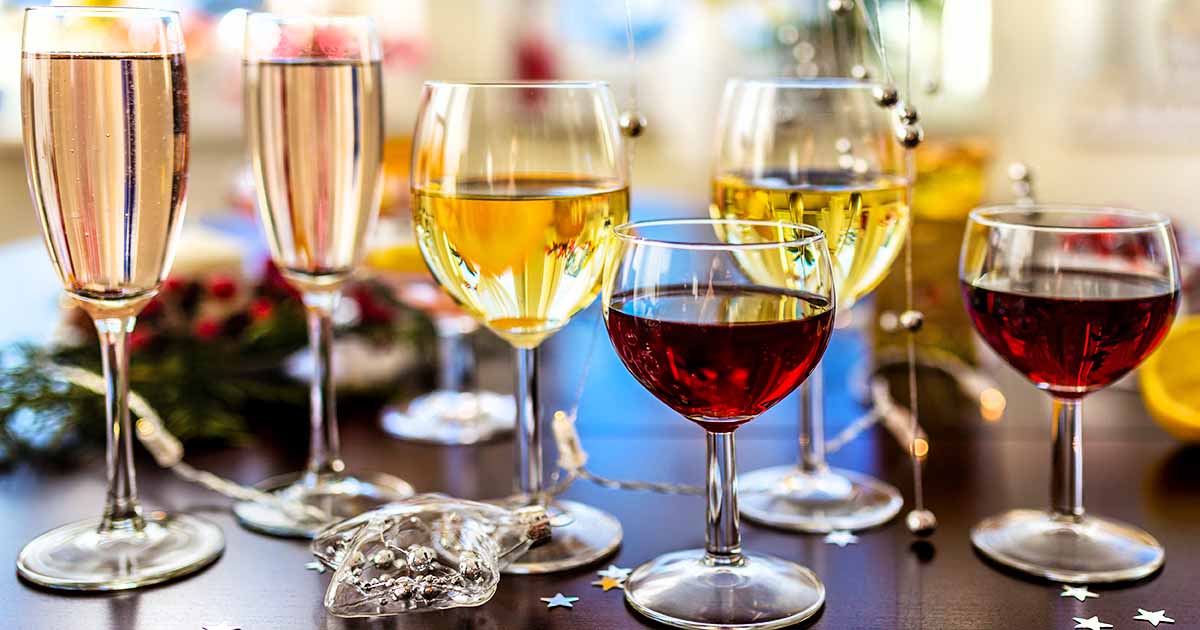Baccarat. Lalique. Swarovski. You’ve most probably heard these names thrown around at a fancy dinner party or dropped in conversation among high society circles. Or you might even have them right in your own cupboard. These are but three of the globally popular brands or manufacturers of the finest crystal drinkware, and there definitely are more of them.
Are you a bride in the middle of a registry and need help deciding between crystal or glass? Or do you own a few pieces that have been stowed away for a long time and now want to revive their sheen? Learn the difference between glass and crystal and how to take better care of your delicate drinkware.
Crystal vs. Glass: What is the Difference?
The term “glass” is a general classification and “crystal” is actually a sub-classification of glass. The latter is manufactured in basically the same process as glass, although different materials are used.
Glassware may be manufactured using different materials like silica, soda-lime, soda-ash, lead, potash, zinc, barium, or titanium. The color and shine of glass greatly depend on what material it was made of. Crystal glass is generally lighter in color and is largely translucent. A number of clear crystals have properties that enable them to reflect light into different colors.
Crystal in its most popular usage is in the form of dinnerware or drinkware that’s more elegant in form (and price!) than ordinary, everyday glassware. To make the long story short, the general rule to remember is this: crystal is glass that contains lead.
Why is Crystal so Expensive?
High-quality crystal contains lead oxide which makes crystal glassware denser and gives it its sparkly quality, unlike its generic glass equivalent. Crystal glass is more expensive than other glass types because of the cost of labor just to cut, grind, and polish it.
We know that there are health risks from lead and this is why most of the lead glass of today are manufactured with lead substitutes instead. Genuine lead glass is harder to come by. Some high-end crystal makers (like Waterford and Swarovski) still use lead and this is probably why their crystal pieces are pricier.
Not to worry, though. Glassware manufactured with lead meets food-grade standards.
What makes crystal glass so unique is its properties that allow for it to be spun thinly, and yet keep its sturdy qualities. Have you noticed how those wispy-thin wine glasses or champagne flutes are nevertheless sturdy?

Cleaning Your Crystal Drinkware
There’s also lead-free crystal which is suitable for dishwashers, but typically, crystal drinkware is best washed by hand.
- Before you wash your crystal drinkware, it is advised that you cushion the base of your sink with a rubber mat or a towel.
- For more sparkle, you may add vinegar to the wash or rinse water. Adding ammonia will help cut the grease out.
- Use a soft-bristled brush for removing dirt from the crevices.
- Rubbing with a slice of lemon and adding vinegar to the wash water will help in removing stains.
- It will be best to let glassware, especially stemware, drip-dry upside-down. If you are to wipe or polish them, do remember to use only soft, lint-free cloth.
If you notice spots on your glassware even after washing, inspect all your other dinnerware. If you find similar spots or residue on glasses and silverware, chances are, you have hard water coming through your faucets. It is likely you have hard water in your area if your clothes also have mineral stains coming out of the washer. Also, if you observe lower water pressure in your home.
Hard water simply means there are higher concentrations of calcium and magnesium present in it. The spots you find in your dinnerware are calcium carbonate deposits. You can easily remedy the hardness of your water, along with its effects on the body and everything else, by installing a high-quality water softener for the home.
If your crystal drinkware has been affected by washing with hard water, simply warm soak your crystal glasses in 2 cups of warm vinegar for at least 3 minutes. Dry with a soft cloth. For tougher stains, you may rub a baking soda + water mixture, toothpaste, or denture cleaner on the spots. Rinse thoroughly then dry.
You could be a frequent party host, a true wine connoisseur, or just a meticulous homemaker with exquisite taste. Whatever your lot is in life, it is perfectly understandable why one might want to know how to take better care of the finer things.




